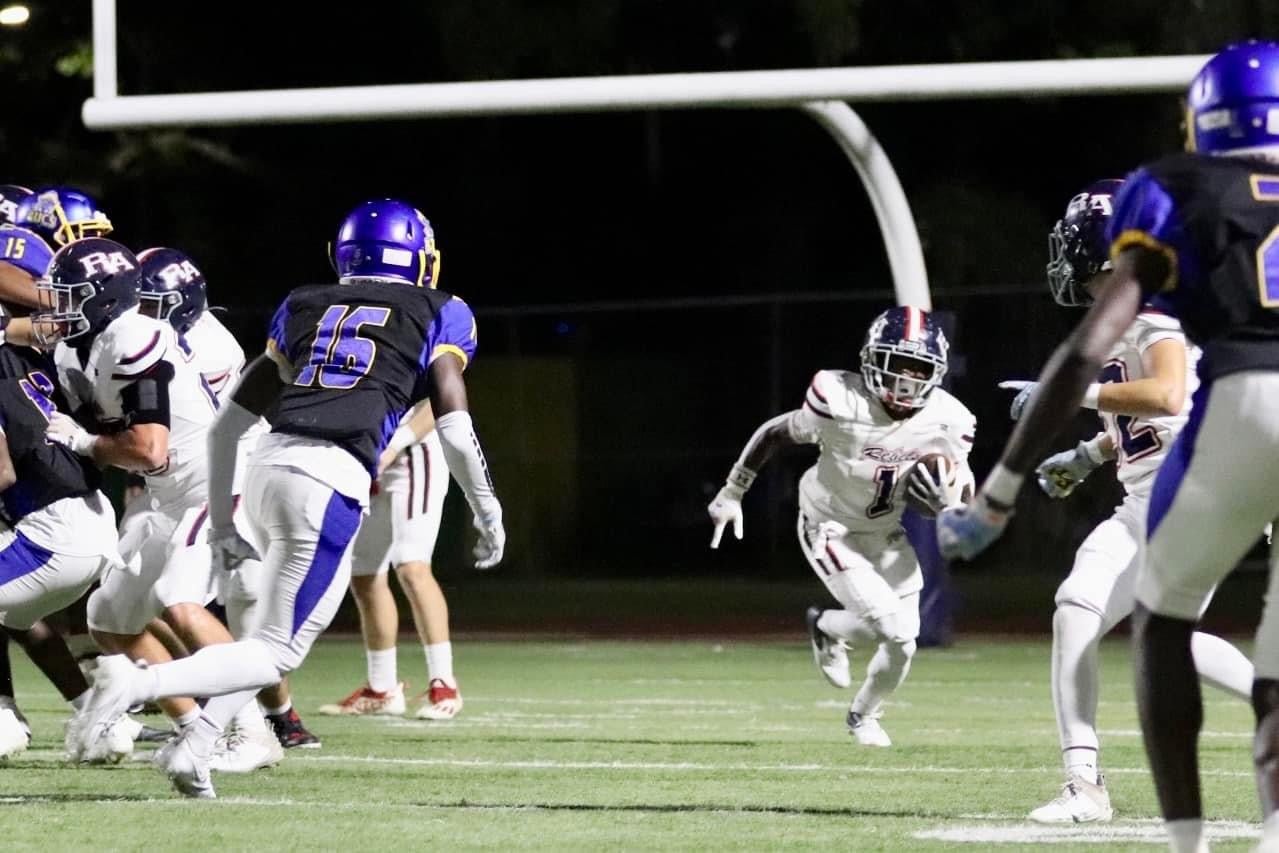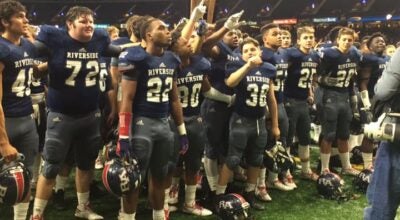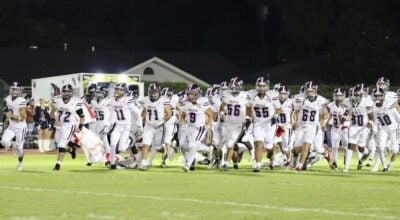Coy Miller honors memory of uncle by winning award
Published 12:00 am Saturday, June 9, 2001
J. EDMUND BARNES
PHOTO: Coy Miller holds his Uncle Anthony’s picture in one hand and the award named for his uncle in the other. (Staff photo by J. Edmund Barnes) VACHERIE – Under the shadow of the Veterans Memorial Bridge, a legacy has been quietly built. It’s been under construction since the early 1960s, when a young athlete in the segregated Second Ward High School impressed his coaches and classmates, not only with his talent and competitiveness, but with his humility and attitude. That athlete was Anthony Miller. But in a tragedy that was repeated over 50,000 times, Anthony Miller was drafted into the Army and killed in 1968 while fighting in Vietnam. More than 30 years later, Coy Miller has won the award which honors the memory of the uncle he never knew, yet emulated through his actions and attitude. The Millers live in Vacherie, surrounded by cultivated fields and the homes where their family has lived for generations. The air is rich with the scent from Chinese tallow trees that grow in their yard. Across the narrow one-lane road is an ancient live oak which guards a house almost as old as the tree. The root and core of the family is here – it is as if they draw their strength from the earth, but its something much simpler. The family lives in close proximity to each other; whenever someone is in need, the family is there to support them. The same can be said of the Edgard-Vacherie community. Even as the bedroom communities of Baton Rouge and New Orleans grow year in and year out, their influence hasn’t touched these parts. It is a microcosm of the entire River Parish area. Here the parents know each other and work together at the same plants. They also know each other’s children, even though they might attend different schools. This creates a unique situation – storied rivalries without a touch of venom. Second Ward High School became West St. John High School in the 1970s. In a time of national turmoil over intergration and the war in Vietnam, the West St. John Rams established themselves as a football powerhouse. Without the violence that had marred the civil rights era, the Rams earned the respect of the predominately white schools like Riverside. “The problem was our coming in there and us being victorious,” said former West St. John coach Rudolph Dinvaut. But before the undefeated seasons in 1971 and 1972 there was Anthony Miller. “Anthony loved to clown around and play off the field. On the field, he was all business. He was very agressive. He was committed to excelling. He always wanted to be the best, not just a good athlete,” said Coach Dinvaut. During the “seperate but equal” era, there were two schools on the west bank side of St. John the Baptist Parish. Edgard was for the white children, while Second Ward was for the colored. Segregation dictated that the black schools played only the black schools. That meant long road trips to New Orleans and Baton Rouge to play Booker T. Washington, Southern Lab, Cypress Grove, and Fifth Ward, to name a few. In those days, Coach Dinvaut was THE coach. The only coach. He began his career in the late 1950s, and remembers getting his first assistants in the middle 1960s. At Second Ward, Dinvaut coached football, basketball, and a little track and field. The teams were very small, with only 34-35 athletes all told, and only 15-18 primary players. Students had to play both sides of the ball. With the team being so small, Dinvaut could practice only his offense or his defense at one time, but never both. “It was a trying experience,” said Coach Dinvaut. “But my goal was to always try and do the best for the kids.” Anthony Miller played both running back and line backer. He had huge heart – and very good luck. His worst injury during five years of high school sports was a broken arm. His top notch conditioning kept him from serious harm. But Anthony Miller set the tone for the community to win, and then to continue to win. “He had all the skills necessary,” said coach Dinvaut. Hillary Bossier remembers Anthony Miller from the players perspective: “I can always remember him playing ball with us. He was 14 years old, and big for his age. And powerful. We were all older kids, but he was still batting fourth in the lineup.” “We nicknamed him Jethro for Sammy Jethro, one of the first black major league baseball players after Jackie Robinson.” But for everything that he had going for him, Anthony “Jethro” Miller never advanced to the next level. “During that time,” said Dinvaut, “there was no film, and during that time a lot of coaches didn’t have the ability to recruit. Smaller schools didn’t get recognized. We were only recognized if we were going into the playoffs. It was felt it wasn’t competitive enough.” Anthony Miller got married to Natalie B. in August of 1966. In November his draft notice arrived. Two years later, he was killed in Vietnam. Bossier was then teaching and coaching at Second Ward. Members of the community and the school system decided to remember Anthony Miller in an annual award, but decided to make it a different award. “It’s not just an award for an athlete. His (Anthony’s) personality made him a great person. It’s an award for someone in the community.” “It keeps the legend alive,” continued Bossier. “I never saw him angry. He was always a lot of fun.” Now the award has been brought home. When coaches at West St. John speak about Coy Miller, a standout athlete in football, basketball, and baseball, they use many of the same words that Coach Dinvaut and Hillary Bossier used to describe Anthony. “The best way to describe Coy would be freewheeling,” said West St. John Head Coach Laury Dupont.”He’s open-minded, laid-back, mild-mannered. (He) puts a helmet on and he has a mean streak. He’s always high spirited. His attitude is great.” West St. John High School gives the Anthony Miller Award annually to an athlete who not only plays two or more sports, but excels in them. The athlete is also required to maintain a minimum C grade point average. Then there are the intangibles. Leadership. Inspiration. Humility. Coy is humble about his athletic success: “I can’t say too much about it. My mother and grandmother pushed me along.” Coy also spoke about the award: “The real impact of the award is on the people in the school.” Bossier agrees: “It gives the kids something to shoot for – it remembers a person who was important to our community and who gave his life for our country.”





